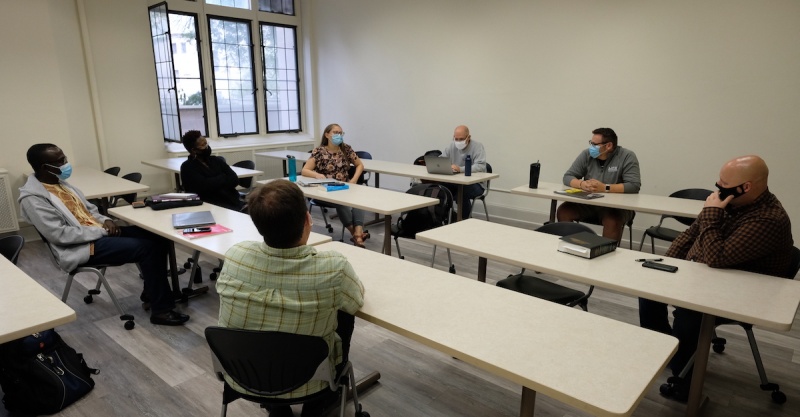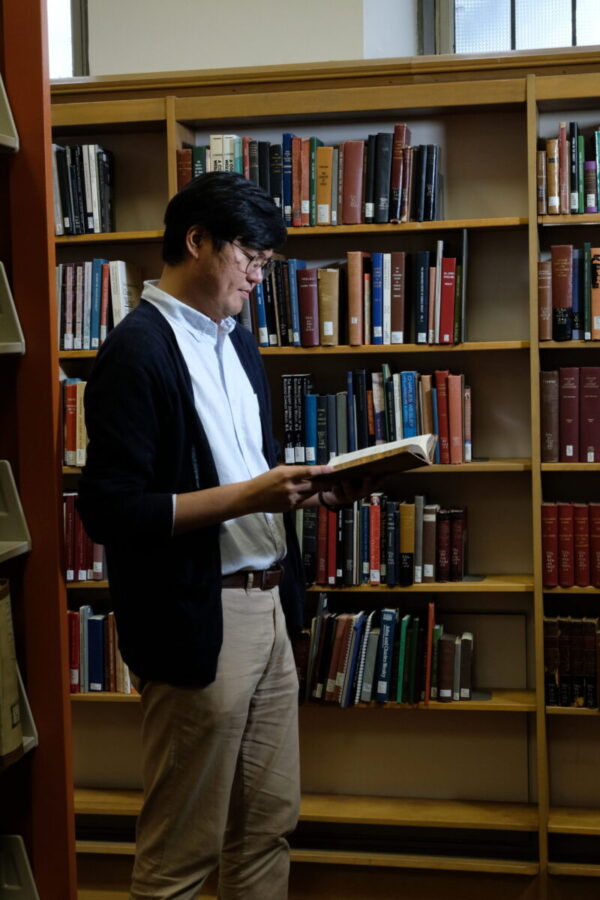Master of Divinity students take an active part in exploring and defining their strengths, background, gifts for ministry, and vocational calling. Garrett’s integrative curriculum prepares students for a wide variety of congregational and non-congregational ministry settings.
The Master of Divinity is an 76-credit hour program that can be tailored to serve each individual’s calling. Students can complete their degree as a residential student (primarily in-person courses on Garrett’s campus) or as a hybrid student (primarily online courses) or as an online student.
Foundational Courses (18-credit hours)
Distribution Requirements (33-credit hours)
General Elective Courses (15-credit hours)
Students pursuing ordination should plan on using general electives to complete any denomination studies or other denominational requirements that are not already required for the degree.
Integrative Courses (10-credit hours)
The Office of Admissions encourages prospective students who are considering ordination to be in conversation with their denominational ordination boards as they discern their next steps in theological education. Some traditions have specific requirements around how many courses a student must take in-person to be considered for ordination.

MDiv students complete two semesters of field education. Combining hands-on experience with peer group discussions, you will come to know approaches to ministry leadership, cultivate practical skills in context as you do the work of ministry with skilled church and community leaders, and engage in critical reflection on the Christian leaders you are called to be.

The Senior Colloquy, a capstone seminar, helps MDiv students integrate their seminary training with their future work as community leaders. Students are required to create a final project that combines theology and practice.
Master of Divinity students can complete their degree as a residential student (primarily in-person courses on Garrett’s campus) or as a hybrid student (primarily online courses) or as an online student.
Concentrations are not required. Declaring a concentration allows you to customize your education for your ministry context. Current concentrations include:
You can specialize you Master of Divinity by adding a second degree. Current MDiv dual degree options include:
Garrett offers courses in a variety of course modalities to meet a variety of scheduling needs. Course options include in-person, online, hybrid, blended synchronous, and more. While the program is taught by faculty of Garrett, students may also take courses at Northwestern University and at any of the Association of Chicago Theological Schools (ACTS) in the Chicago metropolitan area.
Graduates of this program will be able to:
Garrett-Evangelical accepts applications from students with a minimum GPA of 2.5 in a bachelor’s degree from an accredited college or university or from an AETH-certified Bible institute. Because our primary language of instruction is English, applicants be able to show English proficiency, as evidenced by a previous degree in English or completion of either the Duolingo or Test of English as a Foreign Language test.
Applications are reviewed on a rolling basis. International student applications are due by March 1st.